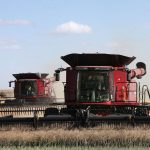The Ontario version of a lawsuit that calls into question whether the federal government and feed manufacturer Ridley Inc. should be liable for the spread and introduction of BSE to Canada is once again waiting for an appeal.
This time the Supreme Court of Canada is being asked to hear an appeal and throw out a decision from the Ontario Court of Appeal that refused to overturn an Ontario farmer’s claim of economic loss caused by BSE.
“If it sounds complicated, that is because it is complicated,” said Cameron Pallett, the Toronto lawyer that is acting on behalf of farmers in what he and many in the cattle industry hope will become a class action lawsuit.
Read Also

Agriculture ministers agree to AgriStability changes
federal government proposed several months ago to increase the compensation rate from 80 to 90 per cent and double the maximum payment from $3 million to $6 million
So far, the Ontario version of the lawsuit has held up as the Ridley and federal government appeal aspects of rules that might apply.
“We aren’t even near getting to (trial) yet. It’s too bad because there’s about $10 billion in damages with more accruing every day and that money should be going to farmers,” said Pallett.
If the Supreme Court agrees to hear the appeal, Ridley can argue that a farmer in Ontario, and all other cattle producers in Canada, should not be able to claim third party damages for feed that Ridley sold to Mel McCrae of Neilburg, Sask., in the mid 1990s. It was a calf born on the McCrae farm that was found to have Canada’s first domestic case of the BSE.
Pallett said that issue and a point of law that limits the liability of the federal government are slowing the pace of the case.
Alberta and Saskatchewan class action cases are now awaiting a hearing of the case in Ontario.
Meanwhile in Quebec, Le Code Civil du Québec has different procedural rules than are found in rest of Canada. As a result, the same lawsuit in that province has already reached the point where notifications of affected farmers are being drafted so producers can be added to the action.
A spokesperson for Ridley said the company expects the Canadian government to join Ridley’s application to the Supreme Court.
Pallett said it might be the Quebec trial that settles the claim for Canadian farmers, if it continues to have the most efficient court process.
















